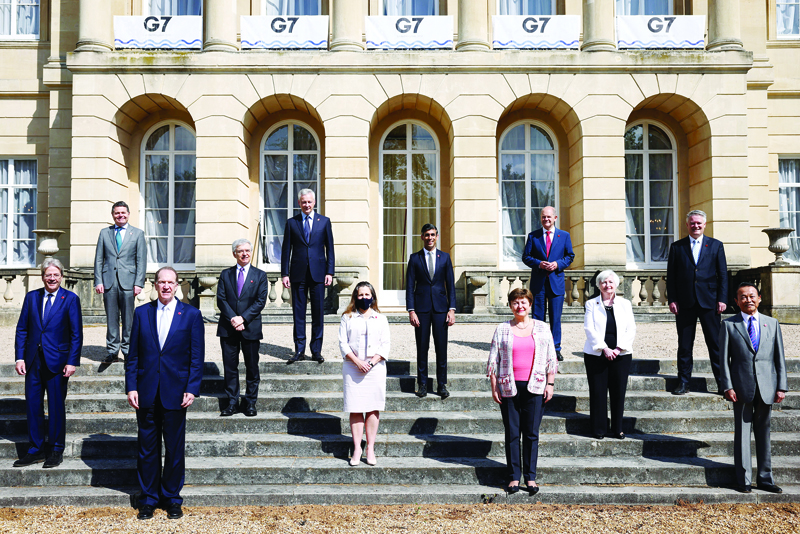
Finance Leaders Reach Global Tax Deal Aimed at Ending Profit Shifting
LONDON — The top economic officials from the world’s advanced economies reached a breakthrough on Saturday in their yearslong efforts to overhaul international tax laws, unveiling a broad agreement that aims to stop large multinational companies from seeking out tax havens and force them to pay more of their income to governments.
Finance leaders from the Group of 7 countries agreed to back a new global minimum tax rate of at least 15 percent that companies would have to pay regardless of where they locate their headquarters.
The agreement would also impose an additional tax on some of the largest multinational companies, potentially forcing technology giants like Amazon, Facebook and Google as well as other big global businesses to pay taxes to countries based on where their goods or services are sold, regardless of whether they have a physical presence in that nation.
Officials described the pact as a historic agreement that could reshape global commerce and solidify public finances that have been eroded after more than a year of combating the coronavirus pandemic. The deal comes after several years of fraught negotiations and, if enacted, would reverse a race to the bottom on international tax rates. It would also put to rest a fight between the United States and Europe over how to tax big technology companies.
Rishi Sunak, Britain’s chancellor of the Exchequer, announced the agreement and hailed it as a deal that would make the global tax system “fit for the global digital age” and would ensure “the right companies pay the right tax in the right places.”
While the agreement is a major step forward, many challenges remain. Next month, the Group of 7 countries must sell the concept to finance ministers from the broader Group of 20 nations that are meeting in Italy. If that is successful, officials hope that a final deal can be signed by Group of 20 leaders when they reconvene in October.Garnering wider support will not be easy. Ireland, which has a tax rate of 12.5 percent, has come out against the global minimum tax, arguing that it would be disruptive to its economic model. Some major countries such as China have been quietly tracking the proceedings but are considered unlikely to buy in. Finance officials believe that if enough advanced economies sign on, then other countries will be compelled to follow suit and they plan to exert political pressure on Ireland to join the agreement.https://www.nytimes.com/2021/06/05/us/politics/g7-global-minimum-tax.html
